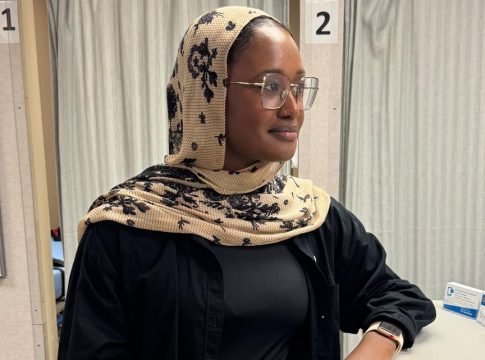The Importance of Representation in Mental Health Care: Hamdi Farah’s Journey
In the realm of mental health, representation can play a vital role in the therapeutic relationship. Hamdi Farah, the sole Somali psychiatry resident at Hennepin County Medical Center in Minneapolis, embodies this concept. Her journey illustrates how having professionals who share cultural backgrounds can enhance patient care.
A Unique Connection
Hamdi Farah reflects on her experiences growing up, noting that she rarely saw doctors who resembled her. As a third-year resident, she recognizes the significance of connection in mental health care. “I’m able to resonate with my Somali patients on multiple levels—our culture, language, and heritage,” she explains. This shared identity fosters a sense of trust, which is crucial for effective therapy.
Having providers who understand one’s background helps to create a comfortable environment where patients feel valued and heard. “It’s important to have individuals who can relate to your experiences,” says Farah, highlighting the need for diversity in healthcare settings.
Breaking the Stigma
Farah emphasizes the necessity of open conversations about mental health within the Somali community. There is often a stigma surrounding mental health issues, leading many to suffer in silence. “I’ve seen people struggle without seeking help due to misconceptions,” she observes. Accessing mental health resources can be challenging, and Farah advocates for breaking down these barriers through education and outreach.
Strategies for Destigmatization:
- Community Conversations: Creating safe spaces for discussions about mental health.
- Education: Providing clear, factual information to dispel myths surrounding mental health issues.
- Accessible Resources: Ensuring that mental health services are available and tailored to meet the cultural needs of the community.
The Intersection of Law and Mental Health
Farah’s interest in mental health was sparked during her college years, particularly when she learned about the troubling overlap between mental health and incarceration. “Many individuals with mental health needs are found in jails, where they receive inadequate care,” she states. Through her volunteer work at Hennepin County Jail, she aims to bridge this gap and advocate for those in underserved populations.
A Commitment to the Community
As she approaches the completion of her residency, Farah is eager to continue her work in the Twin Cities, where her roots lie. “Giving back to my community is critical to me,” she expresses. Farah’s journey illustrates not only the importance of representation in mental health but also the broader impact that culturally sensitive care can have on individuals and communities.
Conclusion
Hamdi Farah’s story is a powerful reminder of how essential it is to have diverse voices in mental health care. By fostering connections that honor cultural identities and addressing the stigma surrounding mental health, we can create a system where more individuals feel empowered to seek help. As we continue to learn from professionals like Farah, we move closer to a more inclusive and compassionate mental health landscape for all.

Covers wellness, nutrition, mental health, and daily life tips.
Bio: Talia brings a background in health journalism and holistic living to help readers live better, one tip at a time.

